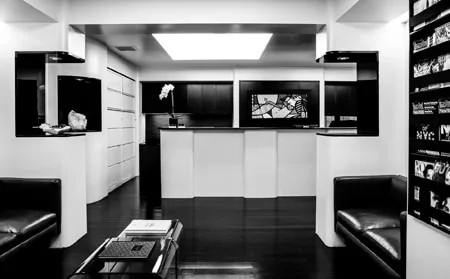Over the last few years, autologous fat grafting or fat transfer method has emerged as a popular cosmetic reconstruction technique. It is now one of the most commonly implemented treatments in reconstructive and aesthetic surgery. According to a report from Fact.MR, the global autologous fat grafting market is projected to expand at a healthy CAGR of close to 10% from 2021 to 2031. By application, breast augmentation holds the highest market share of over 45%. Composite breast augmentation combines implants with fat transfer to provide a softer and more natural look and feel.

Based on the report from the American Society for Aesthetic Plastic Surgery (ASAPS), around two-third of aesthetic treatments performed by plastic surgeons are nonsurgical procedures such as autologous fat transfer, which help avoid complications associated with allogeneic fillers and implants.
Last year, i.e. in 2020, the global market was valued at US$ 172 Mn, and has been expanding at a CAGR of around 8% over the past 10 years. At the same time, factors that hampered the market growth adversely were – the impact of COVID-19 on the global economy, less medical tourism, and low availability of manpower.
Key factors that drive the market growth include –
- Increasing demand for integrated fat transfer systems
- Increase in awareness about cosmetic surgeries
- Growing demand for non-invasive procedures
- Increasing prevalence of scar contractures
- Increasing demand for reconstruction procedures in the U.S
- Growing demand for correction of contour deformities in reconstructed breasts
- Reimbursement facilities provided by Medicare and other healthcare insurance providers in the U.S
New products launched based on new technology by the leading players in the market simplifies treatment procedures and provides improved results to patients. Advancements in autologous fat grafting have made it possible to treat even scarring from accidents, burns, surgeries, etc. With this procedure, the skin in the scarred region becomes softer and more flexible & extensible, and the color of the graft becomes almost the same as that of the original skin. Improvements can be noticed as early as within two weeks and patients treated with autologous fat grafting have also reported that they experienced less pain and improved scar elasticity.
Other key highlights of the report include:
- Growing demand for autologous fat grafting for the correction of contour deformities in reconstructed breasts is expected to surge market growth in Brazil. Demand for fat grafting products for post-mastectomy breast reconstruction is on the rise.
- Integrated fat transfer systems used commercially for the aspiration, filtering, harvesting, and transferring of autologous adipose tissues or fats for aesthetic body contouring have a higher market share. The procedure is a sustainable alternative to invasive cosmetic surgery, as demand for younger skin with minimal skin invasion remains high.
- These systems are intended to eliminate local deposits of additional fat through minor incisions, and consequently transfer the tissue back to the patient. The key benefits of this procedure include rapid recovery with lesser allergic risks and reduced downtime.
The market is divided into these key segments – Product, Application, End User, and Region. The Product segment is further divided into – Integrated Fat Transfer Systems, Aspiration and Harvesting Systems, Liposuction Systems, Fat Processing Systems, De-epithelialization Devices and Accessories (Fat Injection Cannulas, Fat Harvesting Cannulas, LuerLok Infiltrator Cannulas, Cannula Connectors & Single Use Fat Transfer and Tubing Sets). The Application segment includes Autologous Fat Grafting for Breast Augmentation, Buttock Augmentation, Hand Rejuvenation, Facial Fat Grafting and Others. End users of this market are Hospitals, On-site Clinics and Plastic Surgery Centers.
Key players profiled in the report include AbbVie Inc. (Allergan plc), Sisram Medical, Ltd (Alma Lasers), Plus Therapeutics, Inc. (Cytori Therapeutics, Inc.), Genesis Biosystems, Inc., Black Tie Medical Inc. (Tulip Medical Inc.), Ranfac Corp., HK Surgical Inc., MicroAire Surgical Instruments, LLC, Innovia Medical Inc., Human Med AG., Sterimedix Ltd, Proteal Bioregenerative Solutions, Medikan International Inc., and Lipogems International SpA. Region-wise, the market is divided into North America, Latin America, Europe, South Asia, East Asia and Oceania, The Middle East and Africa.
